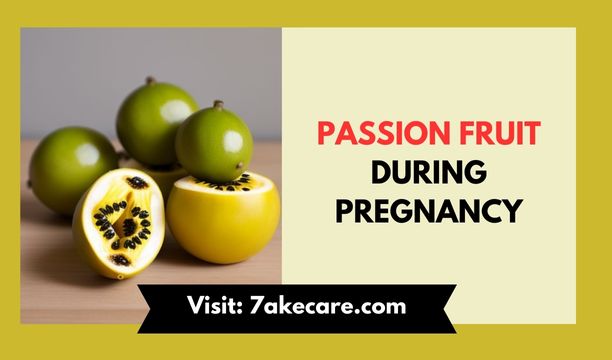Last updated on March 5th, 2024 at 06:52 pm
Table of Contents
TogglePregnancy is a time of joy and anticipation, but it also comes with a multitude of questions about what’s safe to eat and what’s not. One fruit that often raises questions among expecting mothers is passion fruit. In this blog post, we’ll explore the ins and outs of including passion fruit in your pregnancy diet. We’ll cover its safety during different trimesters, potential side effects, how to enjoy it, and whether passion fruit juice and seeds are safe for you and your baby. So, let’s dive in and discover the sweet truth about passion fruit during pregnancy.
Is Passion Fruit Safe in the First Trimester?
The first trimester is a critical time for fetal development, and many women are cautious about their diet during this period. The good news is that passion fruit is generally safe to consume in moderation during the first trimester. Here’s why:
- Nutrient Boost: Passion fruit is packed with essential nutrients like vitamin C, vitamin A, and dietary fiber, which can help support your overall health during pregnancy.
- Morning Sickness Relief: Some pregnant women experience morning sickness during the first trimester. The natural sweetness and refreshing taste of passion fruit may help alleviate nausea and keep you hydrated.
- Folate Content: Folate is vital for fetal development, especially in the early stages of pregnancy. Passion fruit contains folate, which is essential for preventing neural tube defects.
Is Passion Fruit Safe in the Third Trimester?
As you progress into the third trimester, you may wonder if passion fruit is still a safe option. Here’s why you can continue enjoying this tropical delight:
- Nutrient Rich: Passion fruit remains a nutrient powerhouse, which is crucial for your energy levels and maintaining a healthy pregnancy.
- Natural Sugar: The natural sugars in passion fruit can provide a quick energy boost, which is beneficial as you approach your due date.
- Digestive Aid: Pregnancy can sometimes lead to constipation. The dietary fiber in passion fruit can help keep your digestive system regular.
Passion Fruit During Pregnancy – NHS Guidelines:
The National Health Service (NHS) in the UK provides valuable guidelines for pregnant women. According to NHS, consuming passion fruit in moderation as part of a balanced diet is considered safe during pregnancy. It’s essential to maintain a diverse diet to ensure you’re getting all the necessary nutrients.
Potential Side Effects:
While passion fruit can be a delicious and nutritious addition to your pregnancy diet, there are a few potential side effects to be aware of:
- Heartburn: Some pregnant women may experience heartburn, and the acidity in passion fruit could exacerbate this issue. If you have heartburn, consider consuming passion fruit in moderation.
- Allergies: If you have a known allergy to tropical fruits, consult your healthcare provider before introducing passion fruit into your diet.
How to Eat Passion Fruit During Pregnancy:
Eating passion fruit is easy and enjoyable. Here’s a simple guide to savoring this tropical treat:
- Choose Ripe Fruit: Look for passion fruit with wrinkled skin, as this indicates ripeness.
- Cut and Scoop: Slice the fruit in half, and scoop out the juicy pulp with a spoon.
- Enjoy Fresh: You can eat the pulp as is or add it to yogurt, oatmeal, or salads for a burst of flavor.
Is Passion Fruit Juice Safe During Pregnancy?
While passion fruit juice is delicious, it’s important to consume it in moderation. Commercially available juices may contain added sugars and preservatives. It’s best to opt for fresh, homemade passion fruit juice to ensure you’re getting the maximum nutritional benefits without unnecessary additives.
Are Passion Fruit Seeds Safe During Pregnancy?
Passion fruit seeds are edible and safe for most pregnant women. They contain dietary fiber and can add a delightful crunch to your fruit servings. However, if you find the seeds too hard or uncomfortable to eat, you can strain them out when preparing passion fruit juice or puree.
Incorporating passion fruit into your pregnancy diet is both safe and delightful. For easy access to this tropical treat, consider checking out our recommended passion fruit products View Product.
Conclusion:
Passion fruit can be a tasty and nutritious addition to your pregnancy diet, offering a host of vitamins and minerals that support a healthy pregnancy. Remember to enjoy it in moderation, be mindful of potential side effects, and consult with your healthcare provider if you have any concerns. Now that you know the sweet truth about passion fruit during pregnancy, you can savor this tropical delight with confidence.



